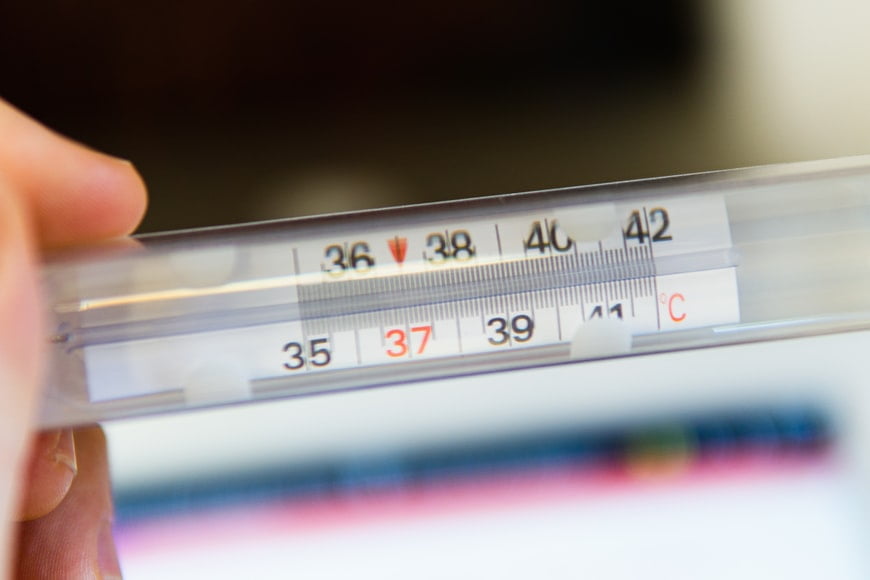From the moment you made a decision to start your recovery, you knew Drug and Alcohol detox would be tough. The physical symptoms alone could make anyone feel as if they don’t have the strength to make it another day.
Add to that, the anxiety, fever, chills, sweating, and sense of loneliness can make you want to avoid detoxing from alcohol or drugs and continue supporting your addiction instead. Fear not, as with this guide, you can learn how to best work with the staff and resources you have to start your recovery as comfortably and painlessly as possible.
Accept assistance with a fever

Within your first several days of drug and alcohol detox, you’ll find it’s hard to stay mentally strong when you have a fever. There will also be body aches, vomiting, and chills as your temperature soar into the hundreds of degrees. You’ll feel exhausted, in pain, and you’ll begin wondering if there will be an end to your ordeal.
The end result of this temporary suffering is a tendency to want to be alone and resist the help that’s being offered. But according to Dr. Albert Stezin (MBBS, Ph.D.), a clinician and neuroscientist, when you have a fever, it’s a good idea to check with the staff to make sure the temperature in your room is set between 60-70 degrees.
Resting and drinking plenty of water and ginger ale is also a good way to flush toxins from your body. It’s also important to accept as much healthy food as possible, even during the first week when you don’t feel like eating. Fever won’t last forever, and the chills and pain you experience in your first few days are a sign of your eventual freedom from addiction.
Embrace counseling for hallucinations
Hallucinations turn into terrifying experiences for people in recovery who are detoxing from alcohol or drugs. Hallucinations can be auditory, tactile, or visual and also occur within the early days of stopping alcohol.
One study used data from the National Epidemiologic Survey on Alcohol and Related Conditions (NESARC) and found that of 34, 533 drinkers, 758 (2%), experienced alcohol withdrawal hallucinations (AWH). Whether hallucinations occur within the first 48 hours or the first week, the experiences aren’t limited to seeing blinking and flashing lights or feeling as if something is crawling on their skin.
If you’re hallucinating, you should speak to a trained psychotherapist where you’re being treated, especially considering these hallucinations might appear so real. Initially, you might not have that opportunity due to the severity of your withdrawal symptoms. But going over details of your hallucinations later with a counselor can bring clarity to an uncomfortable experience.
Overcome anxiety by talking about your addiction

Now that you’ve survived the fever and hallucinations, you may have noticed some of your withdrawal symptoms disappear after the first or second week. That’s alcohol, a substance that has become a toxin to your body, leaving your system to the point that it no longer produces sickness even though you don’t have it.
Talk to your therapists, counselors, and other staff about your addiction, as this will help them help you in the long run. During your intake, you might have remembered asking questions regarding the types of substance (if not alcohol) you used and for how long. You might have also provided information regarding underlying medical conditions and the impact they have. Now is your chance to go deeper.
According to Very Well Mind, communicating with someone who has an addiction problem is challenging, but the staff at your Drug and Alcohol detox center will be thoughtful and take their time in answering your questions, all while showing you kindness and compassion. As you prepare to recover fully following your Drug and Alcohol detox, trust that the environment you’re in is a strong starting point for being clean from substances forever.
Drug and Alcohol Detox is one of the first steps you’ll take in recovering from substance abuse. Along the way, you may experience a debilitating fever and intense hallucinations. Your experience may make you believe you won’t survive. However, understanding the symptoms and how you can use the program to survive Drug and Alcohol Detox is worth your effort once you make the decision to stop alcohol and drugs.
Today, you might have horrible body aches and be unable to keep any food down for long. But in a month, you’ll be moving toward the next steps in your recovery. To start or continue your recovery, read more about flushing harmful substances from your body.
Read Also:





























